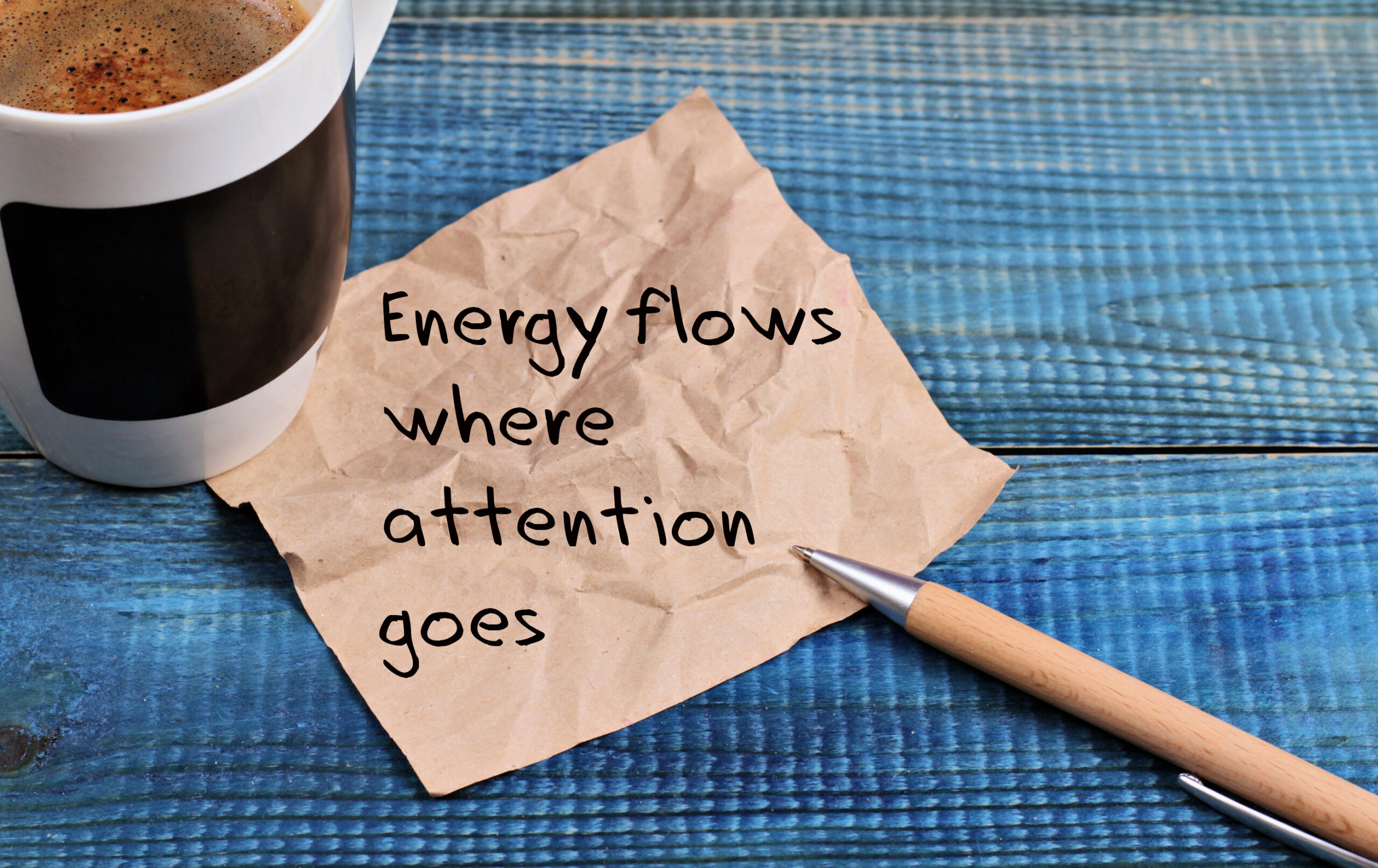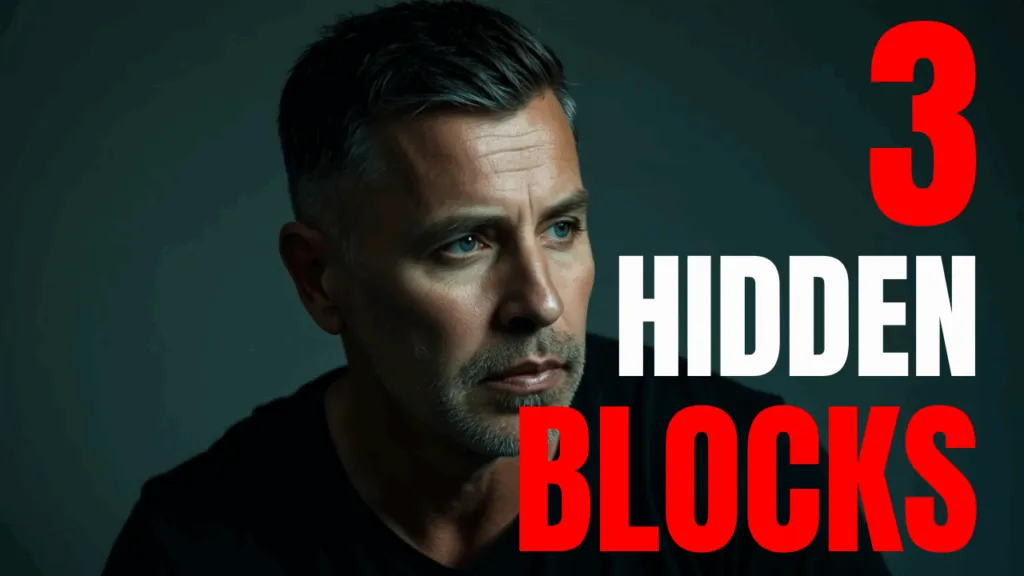
Here’s what to do when success stops feeling like success
You tell yourself you’re just tired and may need a long weekend, a holiday, a break.
The reality: you’ve taken breaks. You’ve had holidays. You’ve tried new planners, new apps, and new supplements. And still, you wake up with a weight on your chest. You crush your to-do list by lunch but feel no sense of progress. You’re constantly busy, but nothing feels real.
You’re not tired from the effort. You’re exhausted from performing.
You’ve hit your targets. Climbed the ladder. Maybe you’re leading a team, running your own business, or pulling a high salary in a respected company. On paper, you’re killing it. Internally, you’re running on fumes.
That feeling you can’t quite name? It’s not burnout.
It’s misalignment.
You’re living a life that no longer fits.
Not because you’re weak. Not because you’ve failed. But because the version of “success” you’ve been chasing belongs to a past version of you. A younger, hungrier you. One who craved status. Security. Approval. Maybe all three.
But now? The wins don’t land the same. The meetings blur together. The things that used to matter just… don’t.
You’ve outgrown the game, but you’re still playing it.
And that’s why you feel stuck.
It’s not that you’re broken. It’s that you’re evolving.
Most people don’t burn out because of overwork. They burn out because they’re working in a way that betrays what they value—and eventually, the body, mind, and spirit revolt.
This is especially true for high achievers. Because the same drive that got you here—the ambition, the standards, the willingness to grind—also makes it hard to admit when it’s time to change direction. You override your instincts. You explain the tension away. You convince yourself this is just what “responsible adults” do.
Until the friction becomes too loud to ignore.
And when it does, you start asking scary questions.
What if the career I’ve built isn’t what I want anymore?
What if the life I’ve designed was based on someone else’s definition of success?
What if I don’t know what really matters to me?
Here’s the good news: those questions are not signs of failure.
- They are signs of awakening.
- They mean your internal compass is coming back online.
- That you’re ready to recalibrate.
- You’ve stopped living by default and are prepared to live by design.
But here’s the part most people miss:
Reinvention isn’t about starting over. It’s about starting true.
And that begins with one thing most people have never been taught to do:
Something that changes how you make decisions, what you say yes to, and what finally feels right.
Because burnout doesn’t come from doing too much.
It comes from doing the wrong things for too long.
Even if you’re brilliant at them.
In the following, you’ll unpack five unexpected truths that explain why success can start to feel off — and what to do when it does:
- How success can quietly pull you away from what matters (without you noticing)
- Where your real values are hiding — and why thinking harder won’t help you find them
- How to tell the difference between a breakdown and a breakthrough
- Why procrastination might be the smartest signal you’re ignoring
- How to decode your calendar — and spot the truth behind your choices
Each one offers a small shift that can bring clarity, momentum, and alignment — that can help you regain control of your direction, energy, and identity.
When Success Stops Feeling Like Success
You did everything right.
Got the job. Climbed the ladder. Managed the team. Built the brand. Earned the salary. Bought the house.
And now? You lie awake at night, wondering why it still feels wrong.
Here’s the gut punch most high achievers avoid for too long:
Success can be the best disguise for a life off track.
When things look great from the outside, no one questions your choices—not your colleagues, friends, or even you, at first. The external validation is loud, so you keep pushing and hitting your goals, KPIS, and the next level.
Until one day, you hit a wall.
That wall usually doesn’t show up as a breakdown. It’s more subtle. Quiet. Creeping. You start zoning out in meetings. You scroll through job ads you don’t even want. You feel oddly detached from your own calendar. You smile on Zoom, but you’re not there.
This is the trap of high-functioning misalignment:
You look like you’re winning. But it doesn’t feel like winning.
Let’s call this what it is—a values disconnect.
What used to motivate you—achievement, advancement, building status—may not hold the same weight anymore. That doesn’t mean you’re soft. It means you’re human. It means you’ve changed. And success that’s built on yesterday’s values won’t satisfy today’s version of you.
Here’s a simple example:
You used to thrive in competitive environments. You liked outworking everyone. You took pride in long hours, tight deadlines, and pressure. These traits matched your values at the time: grit, performance, and progress.
But now? You have kids. Or ageing parents. Or chronic fatigue. Or just a stronger sense of your limits. And suddenly, being in the office until 9 pm doesn’t feel like dedication—it feels like betrayal.
Not because the work changed. But because you did.
That’s the shift no one warns you about:
Your values evolve, but your habits don’t—unless you intervene.
You keep playing a game you’ve outgrown when you don’t pause to recalibrate. And the cost? Burnout, resentment, numbness, and low-grade dread.
This is where it gets dangerous:
You start blaming yourself for a mismatch between your current and old choices. You say things like:
- “I’m just not motivated anymore.”
- “Maybe I’m burned out. I’ll take a holiday.”
- “I should be grateful—why am I complaining?”
But the issue isn’t your mindset.
It’s your misalignment.
You’ve built success on a foundation that no longer reflects your identity. And until you update that foundation, no promotion, title, bonus, or holiday will feel right.
Think of it like this:
You’re driving a luxury car, top of the line. But the GPS is set to a destination you no longer want to go to. You’re not lost. You’re just headed the wrong way. And success only gets you there faster.
This is the real reason high achievers crash.
Not because they’re weak. But because they’re unwilling to slow down and ask,
“Is this still the game I want to play?”
If that question hits a nerve, good. It means something in you is ready to shift.
Here’s the starting point:
Name the success you’re chasing. Then ask—does it still belong to me?
And if the answer is no?
That’s not a crisis.
That’s clarity.
Once you stop defending a life that no longer fits, you can build one that actually does.
You Don’t Think Your Way to Clarity
 If you’re sitting at your desk, journaling your way to clarity, or trying to “figure out” your purpose with another vision board or personality quiz, stop.
If you’re sitting at your desk, journaling your way to clarity, or trying to “figure out” your purpose with another vision board or personality quiz, stop.
You can’t think your way to alignment.
That’s one of the biggest traps. Smart people love to analyse their way out of discomfort. It’s safer to intellectualise, plan, read another book, or take another course.
But…:
Values don’t live in your head. They live in your body. In your calendar, and how you feel after doing something.
You don’t find your core values by imagining them.
You find them by paying attention to what energises and drains you.
You find them by acting.
Here’s what most people miss:
Clarity doesn’t come first. Action does.
It’s backwards from how you were taught. You were told to figure it all out before you move. Plan, then act. But in this case? You have to move first. You have to try things. Test ideas. Pay attention to what hits and what misses.
Let’s make it real:
Say you think you value freedom.
Cool. What does that mean in practice?
You take Fridays off. You try freelancing. You say no to one unnecessary meeting.
Then you notice: Do you feel relief? Joy? Or anxiety?
That’s the feedback loop.
Your nervous system will tell you more about your values than a spreadsheet ever could.
Here’s another example:
Maybe you’ve always said you value creativity. But when’s the last time you made something? Designed. Wrote. Built. Played. Created.
If your calendar is full of admin, meetings, and managing others’ priorities, your value of creativity isn’t absent — it’s suffocating. You’ll know it by how you light up when you do something, even a little expressive. A drawing. A post. A side project.
You can’t confirm a value is real until you try living it.
Psychologists call this “self-perception theory.”
You learn what matters to you by watching your behaviour like a curious outsider.
What do you make time for, even when you don’t have time?
What do you protect, even when it costs you something else?
What do you crave when everything else goes quiet?
This is where many midlife professionals get stuck:
They don’t trust themselves to explore. They’re afraid of wasting time.
Afraid of picking the “wrong” path.
But that fear is an illusion.
Because you learn faster by doing than you ever will by thinking about doing.
If you’re unsure whether you value connection or solitude, join a group and take a solo trip. See which one makes you feel more grounded.
If you want to start a business, take on one freelance client. Not a leap — just a toe in the water.
If you wonder whether health is a true priority, sign up for a week-long 6 am training class and see if it sticks.
You don’t need to be sure before you move. You need to move to be sure.
And here’s the secret benefit:
When you act on a suspected value that resonates, it strengthens that value. It becomes part of your identity. It starts to anchor you. You go from “I think I care about this” to “This is who I am now.”
Over time, small actions stack into a lifestyle. A new rhythm. A truer expression of you.
So if you’re stuck in analysis mode, waiting for some divine epiphany to light the path, stop waiting. Pick one small experiment this week that reflects something you think you care about.
Live it. Then listen.
Your body knows what your mind’s been trained to ignore.
Here’s the lie that keeps people stuck:
Midlife is when things fall apart.
That’s the story you’re sold. The narrative is baked into pop culture. You’re told that hitting your 40s or 50s comes with a crisis. Regret. Loss. Panic. Some of that’s real, but it’s not the full story.
The truth?
This Isn’t a Crisis — It’s a Signal
But only if you’re willing to stop clinging to your old identity.
That quiet frustration you feel? That itch for something more? That low hum of “this isn’t it anymore”?
It’s not dysfunction.
It’s a signal.
A signal that the life you built was for a different version of you.
This is when the questions creep in:
- “Is this really what I want?”
- “Have I just been ticking boxes for 20 years?”
- “Who am I now, and who do I want to be next?”
You might think you’re losing it. But you’re not.
You’re waking up.
- The goals that lit you up at 28? You’ve outgrown them.
- The validation that kept you going at 35? Doesn’t land anymore.
- The things you once chased? They’re not wrong. They’re just expired.
You’re running an outdated version of yourself, like software that needs an upgrade.
What you’re feeling isn’t collapse.
It’s the discomfort of outgrowing your past life without stepping into your next one.
And this middle space?
This messy, blurry in-between?
It’s where reinvention lives.
But here’s where most people go wrong:
They try to fix the discomfort by adding more to their plate.
New title. New car. New side hustle. New course.
But they never ask the deeper question:
Does the life I’m building match the person I’ve become?
If not, the pressure will keep building. Not from the outside. From the inside.
And at some point, you’ll snap.
Or—you’ll rewrite.
Rewriting doesn’t mean torching your life.
It means updating the source code.
It means making peace with what no longer fits—and creating space for what does.
Take stock. What identity are you still dragging around?
- The hustler who had something to prove?
- The overachiever who needed validation?
- The ladder-climber chasing someone else’s version of success?
You don’t need to kill those parts of you.
Just acknowledge they served a version of you that no longer exists.
Now you get to ask:
Who am I becoming—and what kind of life supports that version of me?
You don’t need more hustle.
You need more honesty.
Here’s a different lens:
- What if midlife isn’t about slowing down, but about tuning in?
- What if this stage of your life isn’t about decline, but design?
You’re not starting from scratch. You’re starting from experience.
You know what drains you. What excites you. What feels fake. What feels real.
That’s not a crisis. That’s power.
So give yourself permission to rewrite.
Not because you failed.
But because you finally have the clarity to stop performing and start aligning.
You’re not broken if you’re in this space—this weird, in-between, restless middle.
You’re on the edge of something real.
And the people who step into it? They don’t just redesign their careers.
They rebuild their lives.
Not around who they were.
But around who they’re finally ready to be.
What Your Resistance Is Trying to Tell You
You don’t have a motivation problem.
You don’t need another productivity hack, time-blocking method, or miracle morning. Because the truth is, if something truly mattered to you, you’d already be doing it.
So if you’re procrastinating?
It’s not because you’re lazy. It’s because your soul is resisting something false.
Most people treat procrastination like a flaw. A defect in discipline. A character weakness.
But what if it’s none of those things?
What if procrastination is just your nervous system pumping the brakes because something about the direction you’re headed feels wrong?
You’ve felt it:
That unexplained dread when it’s time to open your inbox.
The heaviness before a meeting that should feel routine.
The irritation that shows up when you sit down to work on a project that checks every logical box but leaves you cold.
We label that friction as avoidance. But often, it’s a values conflict in disguise.
Here’s what that might look like:
- You say yes to a “great opportunity,” but can’t bring yourself to start because deep down, it’s off-brand with who you are.
- You set ambitious goals but stall on executing them because the goal is based on an identity you’re no longer committed to.
- You keep delaying that job application, not because you’re scared of failure, but because you’re scared of getting it and feeling just as empty.
This isn’t about discipline.
It’s about integrity—the kind where your values and your actions are aligned.
When they’re not? Your system rebels.
That inner resistance is intelligence.
Not something to conquer, but something to decode.
Here’s how:
Next time you catch yourself procrastinating, pause. Don’t guilt yourself. Don’t push through blindly. Ask instead:
- What part of this task doesn’t align with who I am?
- Is there a value I’m violating by doing this, or avoiding by not doing it?
Example:
You keep delaying a presentation. You think it’s laziness. But dig deeper. Maybe it’s because you know you’ll have to spin data to make leadership happy, which clashes with your value of honesty.
Or maybe you’re dragging your feet when launching your side business. Not because you don’t want it, but because the version you’ve created doesn’t reflect what you genuinely care about.
Sometimes, procrastination is your intuition throwing a flag:
“This isn’t it. Not like this.”
But if you ignore the signal and keep trying to force yourself forward, the internal tension just builds. That’s how you end up in burnout, resentment, or worse—disconnection from your instincts.
Here’s the mindset shift:
Stop treating resistance like a wall.
Start treating it like a mirror.
It’s showing you something you’ve outgrown, something misaligned, something that wants your attention, not your avoidance.
Of course, not all procrastination is profound. Sometimes, you’re tired, and sometimes, you’re overwhelmed. That’s real, too.
But chronic resistance to work that “should” feel fulfilling?
That’s almost always a sign of internal misalignment.
Instead of shaming it, study it.
It might be the most honest feedback you’ll get.
Because when your mind avoids what your mouth agreed to,
that’s the part of you that still remembers what matters.
And until you listen?
You’ll stay stuck between what looks right and what feels right.
So, next time you catch yourself stalling, try this:
- Name the task.
- Identify what value it might be conflicting with.
- Ask: How would I approach this differently if I were honouring my actual values?
Sometimes, the answer is to let the task go.
Other times, it’s to reshape it.
And occasionally, it’s to walk away entirely.
At least now you’re listening to the right voice, whatever the answer.
What You Really Prioritise Is Already in Front of You
 Forget what you say matters. Look at what you do.[/caption]
Forget what you say matters. Look at what you do.[/caption]
Because when it comes to values, talk is cheap.
Your calendar tells the truth.
- It doesn’t care what’s on your vision board.
- It doesn’t care what you scribbled in your journal last Sunday.
- It doesn’t even care what you tell others.
It tracks what gets your time, energy, and attention.
So if you say health matters but haven’t worked out in weeks, there’s a gap.
If you say family matters, but your phone rings every dinner, there’s a gap.
If you say creativity matters, but your schedule is all meetings and admin, there’s a gap.
And the gap between what you say you value and what you actually live?
That’s where the burnout, resentment, and restlessness live.
This isn’t about guilt. It’s about clarity.
Most people have unconscious value hierarchies. They inherit them from work culture, family, and early career goals. And then they keep reinforcing them through repetition—even when those values no longer feel true.
You start your career valuing ambition. So you optimise your time around work. You skip workouts. Miss dinners. Delay hobbies. It’s all in service of the hustle. And for a while, it works.
But then, your values change.
You start craving peace. Purpose. Health. Time.
Yet your calendar still reflects the values of your past self.
This is how people stay stuck:
They live today by yesterday’s design.
Here’s the simplest diagnostic tool you’ll ever use:
- Print your last two weeks of calendar entries.
- Write your “claimed” core values in the margin.
- Go line by line. Ask: Does this reflect one of my core values?
Be brutally honest.
Is this aligned with your values of freedom? Impact? Autonomy? Growth?
If not, don’t shame yourself. Just notice. Because you can’t redesign your life without first facing how it’s built.
And when you’re ready to rebuild?
Start small. Really small.
If health is a core value, block 30 minutes three times a week. Don’t wait for the mythical “someday” when your schedule clears up. Build the future into your now.
If connection matters, schedule a weekly walk, a no-phone dinner, or one catch-up call. There is no need to wait for a retreat or a perfect social setup.
If creativity is the thing that lights you up?
Put it on your calendar like a meeting with a client. Because that’s precisely what it is—a meeting with yourself.
Bit by bit, those calendar choices become your life.
Because here’s the thing:
Your values don’t shape your life until they shape your days.
Every single action you take is a vote for the kind of life you’re building.
And your calendar is the ballot box.
- Not your vision.
- Not your goals.
- Not your intentions.
- Your time. Your choices. Your patterns.
The work isn’t to change everything overnight. It’s time to start making micro-decisions that reflect your truth, not your past.
One 15-minute block at a time.
That’s how alignment happens.
Not through a grand reinvention.
But through ordinary, repeated proof that you mean what you say.
So, do you want to know what you truly value?
Stop talking.
Start tracking.
And then, start choosing.
Conclusion: This Isn’t Burnout. It’s a Wake-Up Call.
Here’s what no one tells you when you’re burning out:
It’s not the hours. It’s not the workload. It’s not even the stress.
It’s the misalignment.
The version of success you’re living out was built by a past self.
A version of you that wanted different things.
And now that you’ve changed, everything that once felt fulfilling feels… off.
That’s not failure. That’s feedback.
It means your inner compass is still working.
It means you’re ready to stop performing and start aligning.
The good news?
You don’t need to blow everything up to start over.
You don’t need a new job tomorrow or a total life pivot.
You just need to stop lying to yourself about what matters now.
Rebuild your definition of success.
Use your values as the foundation.
Watch the rest start falling into place.
It won’t be instant. It won’t always be smooth. But it will be yours.
Next Step: Join the Free Workshop
If this hit a nerve, you’re not alone.
Thousands of mid-career professionals are hitting the same wall—and looking for a way to reset without losing everything they’ve built.
That’s why I created the REWIRE Your Mindset workshop.
In this 90-minute live session, I’ll walk you through:
- A 4-step framework to realign how you work and live
- How to spot what’s quietly driving your decisions (and what’s been dragging you down)
- How to rebuild momentum without chasing someone else’s version of success
- A practical mindset shift that puts you back in control of your career, energy, and direction
It’s a real-world reset for high-achievers who have outgrown the old game.
Your future doesn’t start with a dramatic leap.
It starts with one honest shift toward a life that actually fits.
You’re not behind.
You’re just done pretending this version of success still works.
References
- Schwartz, S.H., 2012. An overview of the Schwartz theory of basic values. Online Readings in Psychology and Culture, 2(1), pp.1–20.
- Demartini, J.F., 2007. The Values Factor: The Secret to Creating an Inspired and Fulfilling Life. London: Hay House.
- Deci, E.L. and Ryan, R.M., 2000. The “what” and “why” of goal pursuits: Human needs and the self-determination of behavior. Psychological Inquiry, 11(4), pp.227–268.
- Hayes, S.C., Strosahl, K.D. and Wilson, K.G., 1999. Acceptance and Commitment Therapy: An Experiential Approach to Behavior Change. New York: Guilford Press.
- Kouzes, J.M. and Posner, B.Z., 2002. The Leadership Challenge. 3rd ed. San Francisco: Jossey-Bass.
- Maslach, C. and Leiter, M.P., 1997. The Truth About Burnout: How Organizations Cause Personal Stress and What to Do About It. San Francisco: Jossey-Bass.
- Seligman, M.E.P., 2011. Flourish: A Visionary New Understanding of Happiness and Well-being. New York: Free Press.
- Harter, J.K., Schmidt, F.L. and Keyes, C.L.M., 2003. Well-being in the workplace and its relationship to business outcomes: A review of the Gallup studies. In: C.L.M. Keyes and J. Haidt, eds. Flourishing: Positive Psychology and the Life Well-Lived. Washington, DC: APA, pp.205–224.
- Reiss, S., 2004. Multifaceted nature of intrinsic motivation: The theory of 16 basic desires. Review of General Psychology, 8(3), pp.179–193.
- Van den Broeck, A., Ferris, D.L., Chang, C.H. and Rosen, C.C., 2016. A review of self-determination theory’s basic psychological needs at work. Journal of Management, 42(5), pp.1195–1229.






